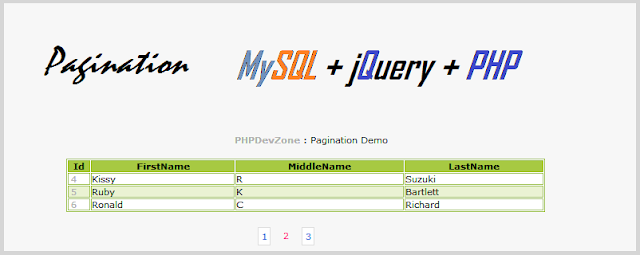Block Visibility Conditions in Drupal
While dealing with “Block” in Drupal, you have many choice regarding its display. Like, in simple words where to display,for which conditions,for which users,for which roles.etc.. So, in this post you will learn about such useful conditions.We called it as “Block Visibility Conditions”.
General Way of providing block permissions
If your block was created from a view (if not then you can create one) ,then the access settings can be set in the view edit mode:
Now you can simply select the permissions to access the block.Users having the selected permission will be able to access this display.
Click on the little 'cog-wheel' to the right of the 'Access' row under the view's basic settings in order to select the restriction you desire:
Attention : Please see the comment below the 'Default Access Options' list as shown in the above image.
If you want to remove 'access all views' for the anonymous user,you can do it from '/admin/user/permissions' and then set the permissions of your other views also. This gives more control over who sees what. Views by default have 'Access' set to 'Unrestricted' generally.
Display the block only to logged-in users.
<?phpglobal $user;if ($user->uid) { return true;} else { return false;}?>Showing a block only to certain Users.
<?phpglobal $user;if ($user->uid == 31) { return "This block is only visible for the user with the user-ID 31.";} else { return;}?>If you want to allow more than one User
<?phpglobal $user;if ($user->uid == 11 || $user->uid == 21 || $user->uid == 31) { return "This block is only visible for the users having user-ID 11,21,31.";} else { return;}?>Show block on specific node type.
For this case, there are two codes you can use any of them.
Code :1
Here, just replace “Example” with your node type.
<?php$nodeType = " Example";if (arg(0) == 'node' AND is_numeric(arg(1)) AND arg(2) == FALSE) { $node = node_load(arg(1)); if ( ($node->type == $nodeType) OR ($node->nid == 1) ) { return true; }}return FALSE;?>Code : 2
<?php // Only show if $return is true $return = FALSE; // Matching current node type with Example if ((arg(0) == 'node') AND is_numeric(arg(1))) { $nid = arg(1); $node = node_load($nid); $type = $node->type; if($type == " Example") { $return = TRUE; } } return $return; ?> Showing to specific roles only(Pre-Defined) in Drupal
<?phpglobal $user;$output = '';if (in_array('admin user',$user->roles)) { return true; }else{return false;}?>Showing block only when the Admin is logged in
<?phpglobal $user;if (($user->uid) == 1) {return true;} else {return false;}?>Showing for a certain content type and node ID:
<?php// Only show block from types array and nodes array$match = FALSE;// Which node types$types = array('page' => 1);// Which nodes (by nid)$nodes = array(1, 2);if (arg(0) == 'node' && is_numeric(arg(1))) { $nid = arg(1); $node = node_load(array('nid' => $nid)); $type = $node->type; if (isset($types[$type]) && in_array($nid, $nodes)) { $match = TRUE; }}return $match;?>Show block only on User profile
<?php // dont show on edit pages $args = arg(); if (count($args) > 2) { return FALSE; } // Visible only on yoursite/user/uid where uid is the user id if ($args[0] == 'user') { return TRUE; }?>Display block for all conditions like node/(anything) but not for node/25 and node/28 (specific)
<?php/* you can define a list of pages to include one per line */$include = "node/*";
/* you can define a list of pages to exclude one per line */$exclude = "node/25node/28";
/* ----------- DON'T MAKE ANY CHANGES IN THE BELOW CODE ----------- */$match = FALSE;$path = drupal_get_path_alias($_GET['q']);$regexp = '/^('. preg_replace(array('/(\r\n?|\n)/', '/\\\\\*/', '/(^|\|)\\\\<front\\\\>($|\|)/'), array('|', '.*', '\1'. preg_quote(variable_get('site_frontpage', 'node'), '/') .'\2'), preg_quote($include, '/')) .')$/';if (preg_match($regexp, $path)) { $regexp = '/^('. preg_replace(array('/(\r\n?|\n)/', '/\\\\\*/', '/(^|\|)\\\\<front\\\\>($|\|)/'), array('|', '.*', '\1'. preg_quote(variable_get('site_frontpage', 'node'), '/') .'\2'), preg_quote($exclude, '/')) .')$/'; if (!preg_match($regexp, $path)) { $match = TRUE; }}return $match;?>Showing block for certain node ID’s
<?php$match = FALSE;//Matching which nodes (using nid)$nodes = array(9, 28);if (arg(0) == 'node' && is_numeric(arg(1))) { $nid = arg(1); $node = node_load(array('nid' => $nid)); if ( in_array($nid, $nodes)) { $match = TRUE; }}return $match;?>





Comments
Post a Comment